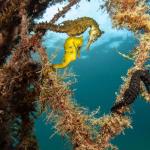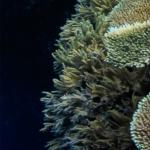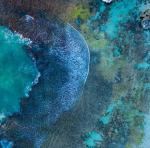Our researchers conduct world-leading work on coral reefs. Here are some examples of our work at UTS contributing towards SDG 14.
About Goal 14: Life below water
The oceans are under severe threat from over fishing, pollution (including plastic pollution), acidification, and warming. The full extent of these threats remain largely out of sight to humans because we are land based animals. The issue is a problem partly because more than 3 billion people worldwide rely on the oceans for part or all of their livelihood. Marine reserves have proven effective at helping to maintain ecosystems however, their scope and coverage remain insufficient.
At UTS our researchers are working with community and government partners in the Asia/Pacific to develop improved management approaches. Coral researchers are identifying species resilient to warming oceans, and students and staff participate in ocean and beach clean-up initiatives. Below are some examples of our contribution and impact.
Super seahorses signal hope for survival of iconic species
Endangered seahorses released into Chowder Bay in landmark conservation effort.
Reef conservation and management in the Pacific
Marine reserve placement is a critical factor determining their success, both for the ecosystem and the communities that rely on them.
Coral Nurture Program
Researchers at UTS are partnering with the local reef tourism industry to replant coral at scale, to fast-track the recovery of the Great Barrier Reef.
A Reef Reborn: enhancing coral larvae survival
Climate change is having a devastating impact on coral reefs around the world. If we are to help improve reef resilience, one key contribution is increasing the survival and growth of baby corals.






